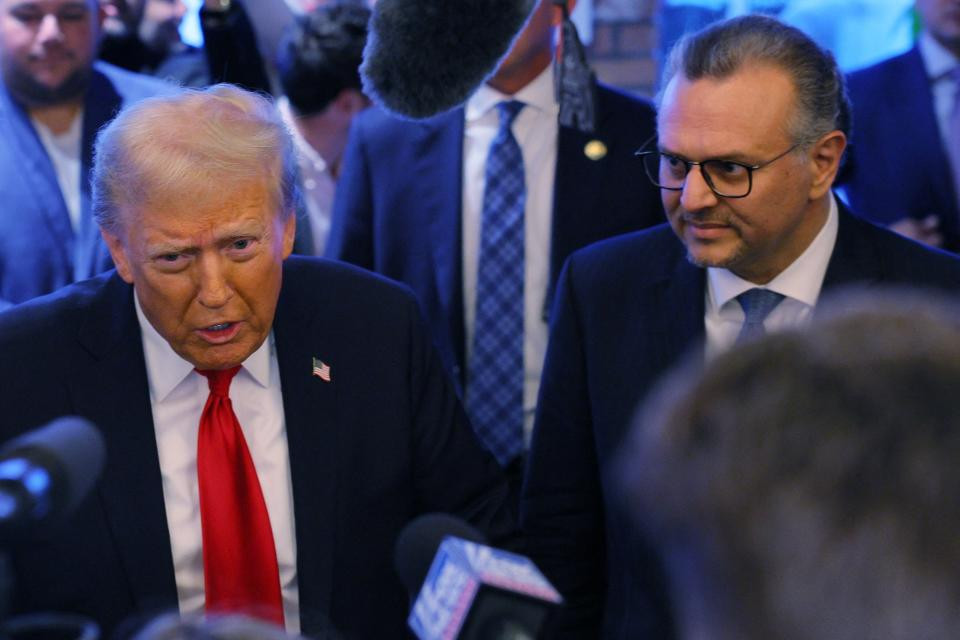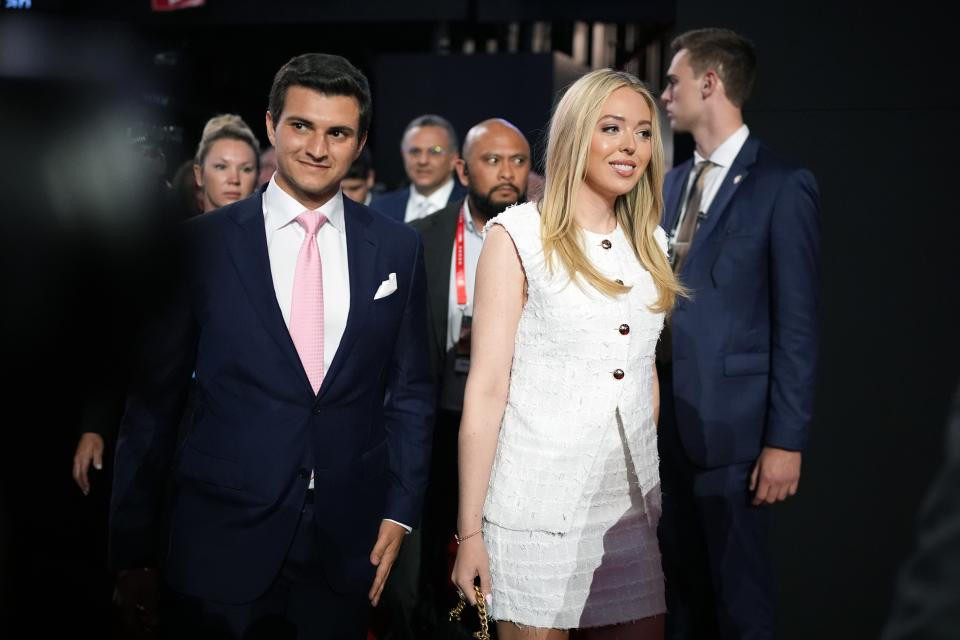Recent reports are casting a stark light on the purported billionaire status of Massad Boulos, father-in-law of Tiffany Trump, raising questions and stirring significant discussions across platforms like Yahoo News and beyond. For a long time, Boulos has been portrayed as an immensely wealthy business magnate, but new investigations are suggesting a reality that sharply contrasts with this image. This article delves into the unfolding narrative surrounding Massad Boulos and his family’s wealth, examining the discrepancies and exploring what this means in the context of his rising influence in political circles.
The initial wave of scrutiny began when The New York Times published an exposé revealing that Massad Boulos, recently named as an advisor to Donald Trump on Middle East affairs, has spent the last two decades as a salesman for a Nigerian company. This company, COA Nigeria PLC, reportedly generated a modest profit of just $66,000 in 2023. This revelation immediately challenged the long-standing perception of Boulos as a billionaire business titan. Further investigations by The New York Times, as well as other financial news outlets, have also indicated a separation between Massad Boulos and the widely recognized Boulos Enterprises, a company owned by a different family bearing the same surname. These details collectively paint a picture far removed from the billionaire narrative that has surrounded Boulos for years.
For a considerable period, international media outlets have contributed to the image of Massad Boulos as a highly successful and influential businessman. Publications such as The Economist have described him as a “successful Lebanese-American businessman largely unknown in the wider world.” This narrative of a powerful, yet enigmatic tycoon has been readily embraced and even amplified by Donald Trump himself, who has publicly lauded Boulos as a “dealmaker.” Boulos himself has appeared to encourage this perception, notably claiming to a Times reporter in October that he was the CEO of a “multibillion-dollar automotive manufacturing and distribution company” in Nigeria. When directly questioned about the accuracy of the “multibillion-dollar” valuation, Boulos affirmed it without hesitation, stating, “Yeah, It’s a big company. Long history.”
 Donald Trump named Massad Boulos a senior advisor to the President on Arab and Middle Eastern Affairs during his campaign. / Brian Snyder / REUTERS
Donald Trump named Massad Boulos a senior advisor to the President on Arab and Middle Eastern Affairs during his campaign. / Brian Snyder / REUTERS
Image: Donald Trump publicly announced Massad Boulos as a senior advisor for Arab and Middle Eastern Affairs during his campaign, a move that amplified interest in Boulos’s background and credentials.
However, the reality of COA Nigeria PLC’s financial status presents a stark contrast. The New York Times reported the company’s worth to be approximately $865,000 based on its current share price. Even more surprisingly, filings indicate Boulos’s personal stake in the company is valued at a mere $1.53. It is important to note that records also show that COA Nigeria PLC is owned by Boulos’ father-in-law, further complicating the narrative of Massad Boulos as the independent billionaire mogul. When confronted about these discrepancies and his failure to correct previous misrepresentations in media reports, Boulos reportedly claimed to the Times that he was simply confirming what had already been inaccurately reported by other news outlets.
Massad Boulos’s entry into the orbit of MAGAworld began around 2018, coinciding with his son, Michael Boulos, beginning a relationship with Tiffany Trump. Tiffany, 31, and Michael, 27, married in 2022 and have been seen together at high-profile Republican events, including the RNC and Trump’s election night gatherings. Donald Trump has openly embraced Boulos, particularly during his campaign, utilizing him as a bridge to Arab-American voters and as a channel of communication with Palestinian Authority leader Mahmoud Abbas.
 Michael Boulos and Tiffany Trump together at the RNC. / Andrew Harnik / Getty Images
Michael Boulos and Tiffany Trump together at the RNC. / Andrew Harnik / Getty Images
Image: Michael Boulos and Tiffany Trump pictured at the Republican National Convention (RNC), highlighting the family’s increasing visibility within political circles.
Born in Lebanon and having moved to Texas as a teenager, Boulos reportedly holds multiple citizenships—Lebanese, Nigerian, French, and American. His new role as Middle East advisor to Trump, which does not require Senate confirmation, places him in a potentially influential position, especially given the volatile geopolitical landscape of the Middle East. In addressing the source of his wealth, Boulos has indicated to the Times that “any significant wealth” he possesses stems from his relationship with his wife, Sarah Fadoul Boulos, suggesting her family’s affluence as the primary source. Despite this, reports also mention Boulos’s attempts at various business ventures, including an “erotic drink” company, construction firms, and a restaurant, none of which appear to have achieved substantial success.
The phenomenon of Trump associates exaggerating their wealth is not unprecedented. Wilbur Ross, Trump’s former commerce secretary, was valued at $700 million when he assumed office in 2017, despite having long presented himself as a billionaire. Forbes reported that Ross had claimed a “phantom $2 billion” that simply did not exist, illustrating a pattern of inflated financial claims within Trump’s circle. Neither Trump’s transition team nor representatives from the Daily Beast have offered comments regarding these recent revelations about Massad Boulos’s financial background.
In conclusion, the emerging narrative around Massad Boulos’s wealth, particularly as highlighted by Yahoo News and other media outlets, presents a significant deviation from his long-promoted image as a billionaire business magnate. The investigations into his actual business dealings and the financial status of COA Nigeria PLC paint a picture of a more modest background. As Boulos steps into a senior advisory role to Donald Trump, the scrutiny surrounding his background and claims of immense wealth are likely to intensify, prompting further examination of the individuals shaping political landscapes.
